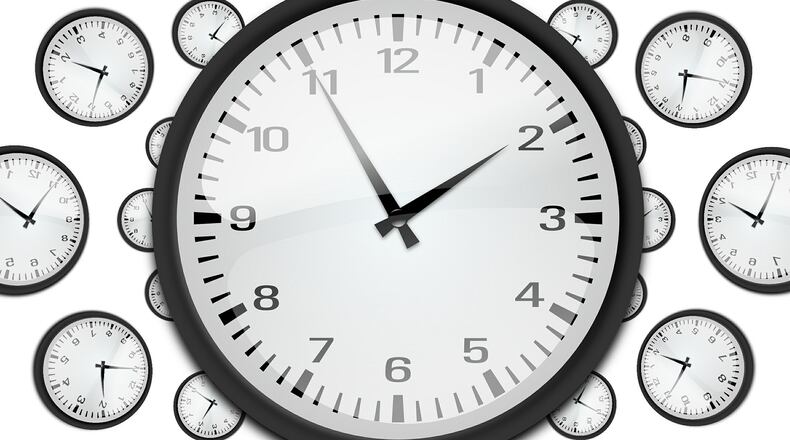House Concurrent Resolution 7, also sponsored by Rep. Bob Peterson, R-Sabina, was approved by the committee last week by a count of 12-2, including several affirmative votes from Democrats. It awaits a full floor vote in the House.
The resolution encourages the U.S. Congress to advance the Sunshine Protection Act of 2023, which would give states the option to permanently adopt DST instead of their current slate of options, which includes either switching clocks to and fro or permanently adopting standard time. The act was introduced by Republican Sen. Marco Rubio of Florida in March of this year.
Creech, who represents portions of Butler and Montgomery counties, told the Dayton Daily News that his primary motivation for the resolution came from constituents.
“People want daylight saving time, but I’ll tell you — they honestly just don’t want to change their clocks any longer,” he said. Creech argued that a permanent switch to DST, and the extra sunlight in the winter evenings that comes with it, would have a positive effect on people’s mental health.
Creech’s resolution was opposed by only one group called Save Standard Time, which argued that daylight saving time — which the group considers “false time” — causes the sun to rise too late in the day, which it said could have a score of negative chain reactions.
Jay Pea, president of the Arizona-based time advocacy organization, suggested that a later sunrise during the winter months would have a negative effect on farmers, construction workers, and other outside laborers.
Creech, a farmer who conducted a phone interview with the Dayton Daily News from the seat of a combine, said a lack of morning light “makes absolutely no difference,” at least for farmers.
“I’ll tell you why: Farmers get just as much done after 8 o’clock at night as they do at 8 o’clock in the morning,” Creech said. “With the lights that we have on our equipment today, it almost feels like it’s daylight saving time.”
For Dr. Greta Mayer, CEO of the Mental Health Recovery Board of Clark, Greene & Madison Counties, the debate between the current biannual time system, permanent standard time or permanent daylight saving time comes down to how those systems impact how effectively people can sleep. Mayer explained that sunlight is a prime factor in humans’ circadian rhythm, which has an impact on effective sleep, which can impact a person’s hormones, which can ultimately impact their mental health.
“If you wanted an opinion, as a mental health professional, I would say I would lean toward the standard time,” said Mayer, who noted that research from sleep experts — despite being inconclusive — suggests that standard time is likely more in-line with humans’ circadian rhythm than daylight saving time.
However, Mayer suggested that the current system of switching back and forth is likely more detrimental to people’s mental health than just sticking to a permanent time, regardless of whether it’s standard or daylight saving time.
“I think that there’s a benefit of that standardization,” Mayer said.
Editor’s note: Readers currently struggling with mental health or addiction can seek help by calling or texting 988 in order to immediately get in touch with a network of nearby counselors who can help provide relief.
About the Author

